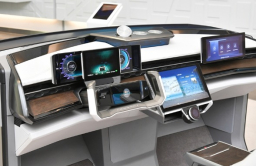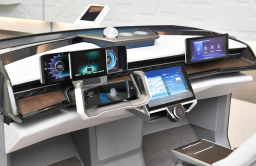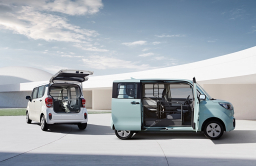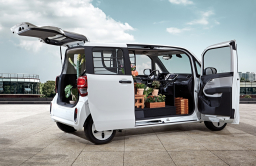-
KOSPI 2577.27 -2.21 -0.09%
-
KOSDAQ 722.52 -7.07 -0.97%
-
KOSPI200 341.49 +0.02 +0.01%
-
USD/KRW 1396 -2.00 0.14%
Hyundai Group unveils purpose-built vehicle for airport pickup
Automobiles
Hyundai Group unveils purpose-built vehicle for airport pickup
Kia aims to become the world’s top PBV player by 2030 by launching various custom-tailored vehicles
By
Sep 19, 2022 (Gmt+09:00)
1
Min read
News+
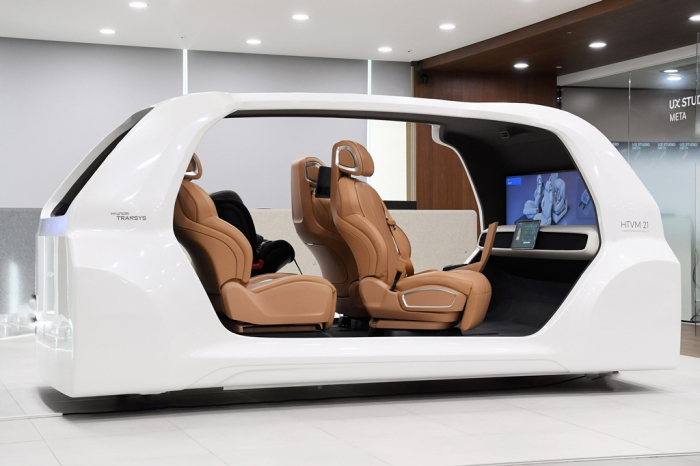
Hyundai Motor Group has unveiled the interior design and user experience technologies for its purpose-built vehicles (PBVs) as the top South Korean automaker aims to become the world’s top PBV player by 2030.
At the UX Tech Day 2022 on Friday, the group’s four affiliates – Hyundai Motor Co., Kia Corp., Hyundai Mobis Co. and Hyundai Transys Inc. – showcased a PBV test car for airport passenger pickups.
The vehicle, to be manufactured by Kia, doesn’t have a front passenger seat, nor a trunk. The space can be used for luggage.
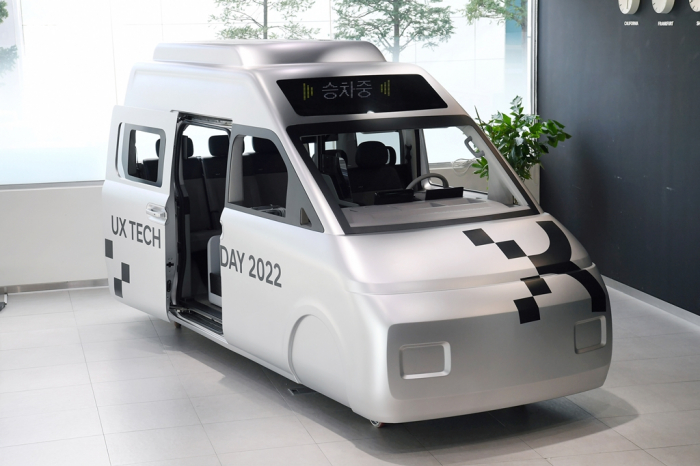
At the show, the group also unveiled a responsive PBV seat concept that it is jointly developing with the Massachusetts Institute of Technology (MIT) Media Lab. The technology, among other things, adjusts seats after checking the body shape of every passenger.
The market for personalized vehicles has great potential as such cars can be used for various purposes such as public transportation, clinics, cafes, living space and freight transfer.
Kia, which is leading Hyundai Motor Group’s PBV projects, has already signed business agreements with Coupang Inc. and CJ Logistics Corp. to build custom-tailored vehicles for product delivery jointly.
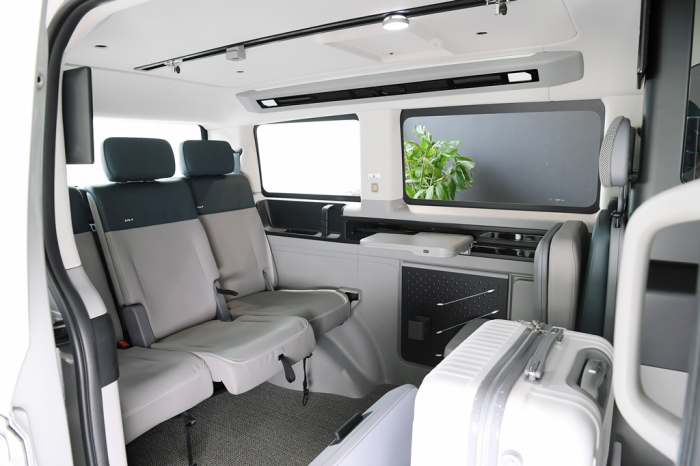
Kia’s PBV business is integral to its future mobility strategy dubbed Plan S, meaning a plan for a shift toward future mobility. The company expects purpose-built vehicles to account for about a quarter of all cars sold globally by 2030, according to Kia Chief Executive Song Ho-sung.
Kia plans to break ground on the construction of its first PBV manufacturing plant next year with an aim to start mass production in 2025.
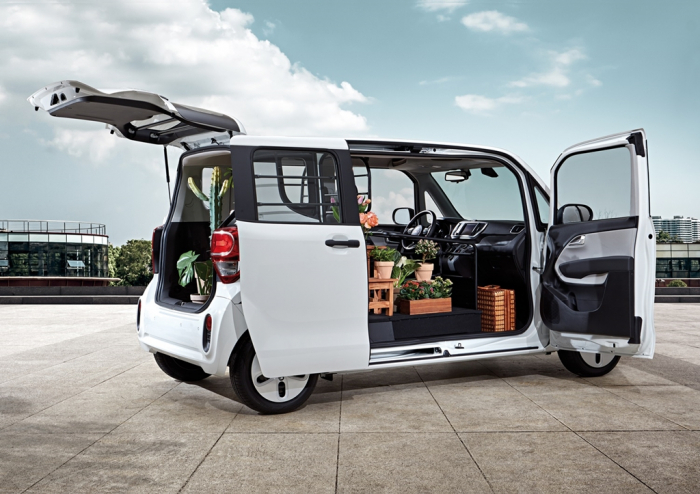
In February, Kia CEO Song said the company will be reborn as a first-mover instead of a fast-follower in the era of future mobility by focusing on electric vehicles, particularly the emerging segment of purpose-built vehicles.
The automaker also plans to build a dedicated PBV platform with an aim to produce at least 1 million units by 2030.
Write to Han-Shin Park at phs@hankyung.com
In-Soo Nam edited this article.
More To Read
-
Sep 05, 2022 (Gmt+09:00)
-
Jun 23, 2022 (Gmt+09:00)
-
Apr 15, 2022 (Gmt+09:00)
-
Mar 30, 2022 (Gmt+09:00)
-
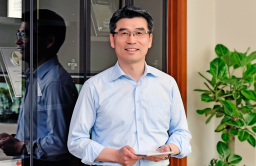 Chief ExecutivesKia aims to become purpose-built vehicle market leader: CEO
Chief ExecutivesKia aims to become purpose-built vehicle market leader: CEOFeb 02, 2021 (Gmt+09:00)


